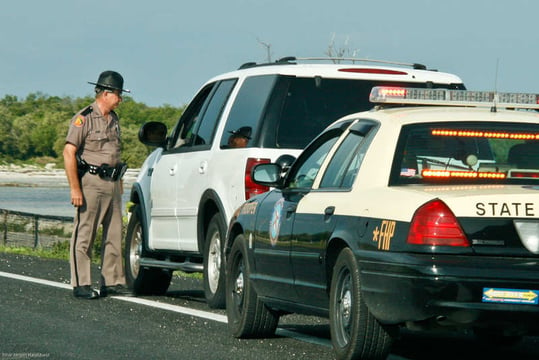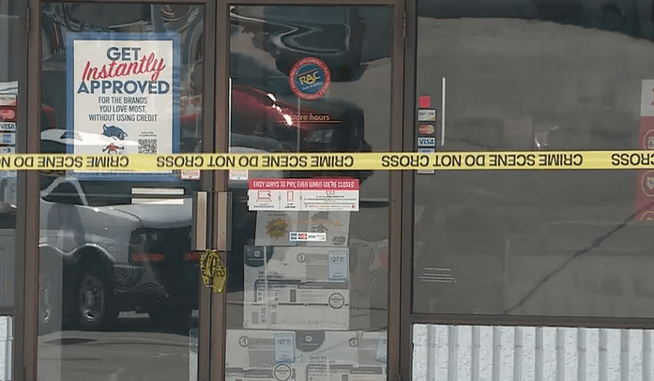We received a question through our Facebook page awhile back and wanted to address an important question: what should you do if you’re a passenger in a vehicle that is stopped by police and you’re carrying a concealed firearm?
We’re not attorneys nor do we purport to attempt to give legal advice so ultimately if you want legal opinion, you should consult with an attorney familiar with the laws of the state that you are stopped in.
A few questions you will want to consider in advance:
- Is your concealed carry permit/license valid in the state the vehicle is being pulled over in? (RECIPROCITY)
- Do you have a duty to inform the police officer of the presence of your handgun? (DUTY TO INFORM)
- Is the handgun loaded and accessible? (ACCESSIBILITY)
- Are you or the driver under the influence of any controlled substances or alcohol? (SOBRIETY)
- Is the firearm specifically under your control? (HOLSTERED)
- Are you in a school zone or another place where you are prohibited by Federal or State law from carrying? (PROHIBITED)
Addressing these questions specifically will help clarify how a member of law enforcement may decide to view your situation.
Where issues come up of sobriety, reciprocity, and legal possession, you’ll definitely want to consult an attorney first and foremost.
When you are in doubt about whether a state or locality acknowledges your right to carry a concealed firearm, you will want to ensure that the firearm is unloaded and locked in a container in a place that is not accessible by you, the driver, or any other passengers. The best place to store a firearm when moving through a state that you are unfamiliar with their laws is in the trunk, unloaded, and locked up.
As you can see, there are a lot of factors governing how you should handle yourself as a passenger in a vehicle.
Duty To Inform And Reciprocity
We wrote a pretty comprehensive article detailing the duty to inform a police officer before he or she asks about your handgun. State and local laws change on a yearly basis so it’s important to reference that article just as a basic guide. Some information may be outdated or inaccurate as additional laws come and go into effect.
In states that require you to inform a police officer of the presence of a concealed handgun — like Arizona, North Carolina, Texas, and a few others — it’s in your best interest to be forthright with the officer. Doing so can be a matter of ensuring the safety of yourself, the driver, any other passengers in the vehicle, and even the police officers themselves.
For states with specifically no duty to inform — such as Georgia — it is your call to do so.
Most police officers, when approaching a stopped vehicle, have their own lives to consider first and foremost. Letting them know you mean no harm and have no bad intentions is a great first step to having a positive interaction.
Not all police are duly informed about your Second Amendment rights so it is your job to:
- Remain calm
- Clearly articulate yourself
- Keep your hands visible at all times
- Comply with all legal requests (permit, identification)
If you are in a ‘Duty To Inform’ state, it is your job to inform the police officer that you have a concealed firearm on your person. If the police officer asks to see your concealed carry permit, you must present it.
Even if you are NOT in a ‘Duty To Inform’ state, many police officers will usually be thankful that you are forthright in reporting the presence of a firearm on your person. If the officer tells you he doesn’t care, that’s his prerogative. Giving him the choice is a sign of respect.
Most of the anecdotes we’ve received from regular readers and some law enforcement professionals is that so long as the police officer knows you are complying with lawful requests, he’s going to be a lot calmer throughout the interaction. Calm is good.
If you’re doing nothing wrong, in most cases you have nothing to worry about. Being direct, respectful, and complying with all lawful requests will go a long way to establishing a basic rapport with law enforcement involved with the traffic stop.









![[LIVE] Protests And Riots Erupt In Multiple Cities, At Least 2 Officers Shot](https://imagedelivery.net/sbm_lYeJbALkepJgtmRD5w/concealednation.org/2020/09/ScreenHunter-69.jpg/w=728,h=381)
![[VIDEO] Concealed Carrier Does Everything Right During Traffic Stop, Is Handcuffed And Vehicle Searched](https://imagedelivery.net/sbm_lYeJbALkepJgtmRD5w/concealednation.org/2020/07/ScreenHunter_3583-Jul.-22-12.56.jpg/w=728,h=381)



![[VIDEO] World Record: Jerry Miculek Hits A Balloon From 1000 Yards With His S&W 929](https://imagedelivery.net/sbm_lYeJbALkepJgtmRD5w/concealednation.org/2014/08/ScreenHunter_73-Aug.-05-13.33.jpg/w=560,h=280)